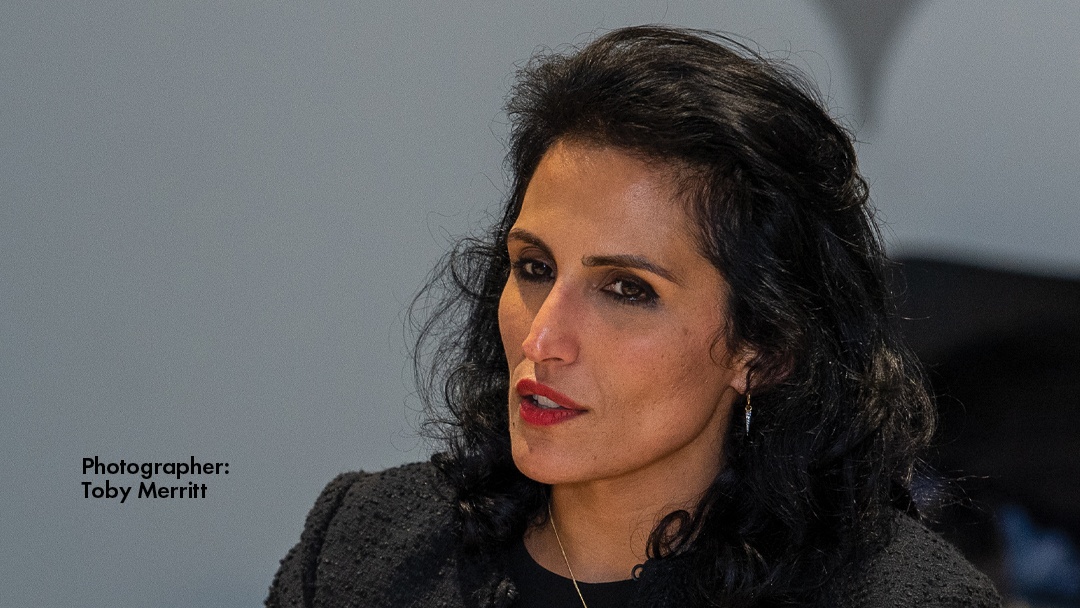Litigation is increasing as ESG commitments and promises come under increasing scrutiny from activists, consumers and investors. It is a trajectory that will increase upwards, with the introduction of more ESG-related regulation and the proposed extension of the ‘failure to prevent’ remit.
In this roundtable, we asked some of the UK’s most prominent in-house lawyers to share their thoughts on trends in emerging legislation around ESG and examine how organisations can prepare for the further extension of ESG-related legislation.
Mark McAteer, The In-House Lawyer: I would like to hear some of your experiences at the coalface in in-house teams. Would anyone like to say what is high up on their boards’ agendas now, from the ‘E’, ‘S’ or ‘G’? Is the ‘E’ diminishing and being replaced by the ‘S’ and the ‘G’?
Anthony Kenny, GSK: It is a very interesting debate. They are separate. I have been, and still am, keen to unite the ‘E’, the ‘S’ and the ‘G’, but I am accepting that there are different stakeholders involved and different people responsible and I have to respect that. There is a logic to some of the separation in our organisation. However, there is increasing crossover. You can separate them out, and many people are pushing to separate them out, but I still think they should be viewed as one.
If you take, for example, the environment and what is commonly within the ‘S’ – human rights – they are increasingly linked together. Whichever way you do it, the ‘G’ is the core of it because, ultimately, whether you are looking at the environment or human rights, how are you managing the risk? How are you identifying it and how are you managing it? That is essentially governance.
Melissa Strong, Lloyds Banking Group: Governance claims are going to get more traction as we see claim volumes increasing, where despite the fact no financial remedy is sought it will be seen as one of the heads of redress: ‘We do not just want damages, thanks. We want you to reform your board and decision-making process so this cannot happen again’. That is going to put it high on the agenda.
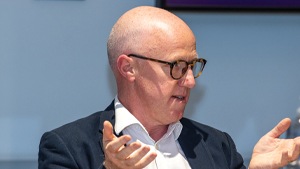
Nigel Paterson, Currys: It is going up the agenda for two reasons in our organisation because we want to put that as one of our USPs. We want to promote the circular economy and, as an omni-channel retailer – stores and online – you can come to us and recycle your products. Because we are putting ourselves out there, we obviously need to make sure those claims stand up.
Mark McAteer: What do we think are the drivers behind this? Is there a much greater threat now, and it is high on the agenda because it could give rise to claims for directors’ liability?
Anthony Kenny: Yes. The short answer is yes. That is happening already. Activist investors are attacking boards, but clients and other people are also coming in and saying, ‘What are you doing?’ That is at the company level, but it is now also starting to go up to directors.

Melissa Strong: It is a factor, but we shouldn’t down play the awareness by financial institutions that they can wield real power through (as claimants), and they want to do something positive to help solve the climate change crisis, ensuring responsible and effective governance is one way to do this. Of course, there is risk in elevating it, but the reason it ever got into the boardroom is a commitment that they are trying to make to use finance for good.
Securities litigation is clearly growing in the UK. While financial institutions are potentially big players in the claimant market, they have historically been reluctant to engage as they don’t see it as their day job. But if you put the ESG angle on it – often rightly, and particularly on the governance side – and that can be is the tipping point that says to this institution, ‘You should go out and fight for this because you are a good corporate citizen. We must hold these other companies accountable’. Of course, there is also an awareness they could just as easily be the defendant.
Zachary Krug, Signal Capital Partners: I can speak a bit from the claimants’ perspective, both from the investor side and the claims side. To your question, ‘Are investors increasingly focused on this?’ Yes, they are. We have investors which, unless we are compliant with certain standards, will not invest with us. That is a change. On the claimant side – as a litigation funder – we are not seeing as much ESG-related litigation as one might think or might be worried about from a defendants’ perspective, but there is certainly more discussion about it.
Melissa Strong: The validation process is a grey area. None of us know quite what standards we are going to be held to. That is why I am nervous. People keep saying to me: ‘What do we need to do to avoid litigation?’ and I say: ‘I do not know for certain. We need to see litigation evolve to understand the threshold companies will be expected to meet’. Due diligence and adequate oversight is going to come across all of this – record keeping and showing what you did – but we do not know yet what standards we are going to be held to in terms of that validation process.
Mark McAteer: We have a mix of lawyers and experts in other fields here. Mark, you are on the tax side. How is ESG strategy managed? Is it the responsibility of the in-house legal team or does it have to go across the board into PR, reputation management or tax?
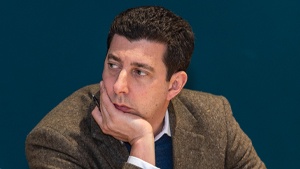
Mark Feldman, Smiths Group: Everybody thinks of the last revolution, which was digitisation and digitalising everything. That goes pervasively across the whole organisation in the same way ESG will. In my area of tax, we have worried about the ‘S’ aspects for a while because of parliamentary accounts and the court of public opinion about corporate tax avoidance. That is about trust in society, trust in the system, inequality and fat cats, so we have always worried about that reputationally.
We are clearly at the start of, effectively, a revolution. It is disruption and all of these different standards will coalesce. You have loads of different patchwork quilts that do not necessarily fit together.
Darshna Shah, Elastacloud: That is the problem with ESG rating suppliers. They are collating similar types of data but weighting it in different ways. That is not standardised, which is rather problematic. There was an MIT study that showed that the correlation was as little as 0.4 across the major suppliers, which is ridiculous. There definitely needs to be some convergence on what importance is placed on each of those metrics.
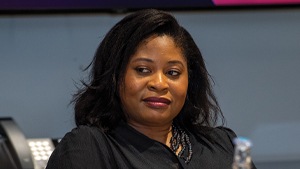
Catherine Odigie, Marex Financial: The problem I see with having lawyers responsible for ESG is that, while they are very valuable, when it comes down to reporting, the data collation, the analysis and how it is going to affect every facet of the business, I’m not sure that the lawyers would be well placed to do that. Operational risk teams, or at least looking at ESG as a major risk to the business, might be another effective way.
Alia Alguire, Elastacloud: I would agree with that. There is an attitude that, when it is presented as compliance or regulation it is really difficult to get across the line. If you wear your legal hat, you can almost see people’s faces just zone out.
Silvana Glibota-Vigo, Keller Group: It needs a multi-disciplinary team rather than one person or one role, not necessarily the GC who doesn’t sit on the board as a matter of course, unless they are the company secretary as well. It has to be a team effort.

Clarissa Coleman, DAC Beachcroft: What are the insurance concerns with all this? Has anyone considered special ESG insurance? Are the insurers requiring you to undertake anything specific to mitigate against the ESG risks? This is what we saw with cyber. As soon as people had cyber insurance, they had to sort out their cyber security internally because that was a requirement of the insurance policy. Are you seeing the insurers as drivers for change in an ESG context?
Caroline Halliday, Schroders: It comes back to terminology, because we all know that the exact language and terminology used in any kind of insurance coverage that you have will be key in a world where ESG terminology is changing, fluid and being developed.
Darshna Shah: There is a lot of ambiguity, specifically around the supply chain. One customer is always talking about data acquisition with their supply chain and the fact that their suppliers are not always truthful around their environmental impact because they think that they will be treated unfavourably if they disclose certain facts. There is that legal element: how do you enforce that representation in an accurate way to ensure that you are not exposed to certain risks?
Alia Alguire: What has been your experience on the litigation front? Have you experienced much interest by way of claims?
Clarissa Coleman: We have seen rise in climate-related claims. It has been possible to bring derivative actions since 2006, but it was a tool that was rarely used because someone gets a share and brings a derivative action but does not recover any money from the damages because it goes back into the company. We are seeing a number of the climate activist groups buying those shares, to bring claims against companies and force them to change their ESG and climate related policies.
Laura Berry, DAC Beachcroft: You need permission to bring them, and that is not a given. A few have not had permission from the court to progress.
Caroline Halliday, Schroders: For what reasons have they been blocked?
Laura Berry: The courts have tended to look at the underlying claim and say: ‘That is not arguable’. The same difficulties apply to this kind of claim as to more general activist claims – it is often difficult to show causation or loss.
Caroline Halliday: Presumably, as well, their shareholders will ask questions so, even if you do not get to court, it still shines a spotlight and may be bad publicity. It makes them question and justify what they have been doing.
Alia Alguire: Strategically, it is a really powerful move.
Laura Berry: Activist shareholders are not necessarily giving up at that point either – there is a willingness to try to appeal, and to consider other creative and novel ways of bringing claims or adding pressure. The court’s appetite to consider those types of arguments might also increase as social pressure increases. In other jurisdictions, they are doing it. The courts in England will not want to be left behind on that. The first derivative action that fell within the climate change sphere did not get permission, but it is still under appeal. They have not gone away and thought, ‘We did not get permission. We will drop that’. They still think it is worth pushing and there is a lot of publicity around it, so maybe that is enough.
Mark Feldman: I am just going to take the conversation in a slightly different direction. Is it not incumbent on us collectively, the people in this room, to start to change things? If we believe that society is collapsing, the environment is collapsing and we need to solve it, then it has to start with the law – in a democracy, at least. Therefore, if we think the law is deficient, should we not be advocating for change there, building trust in the legal profession above where it is at the moment and trying to effect that change?

Anthony Kenny: That is a good point. We have an opportunity, if we want to take it, to drive debate. The power of being in-house is being able to contribute to the debate in a positive way. Rather than having myriad reporting regimes around the world, let us have one global standard that focuses on the really important things that are going to make that difference.
Silvana Glibota-Vigo: As an engineering business, the challenge that we face is that you can say, ‘Okay, we are going to build in a different way: fewer emissions, using less concrete’, or whatever, but those innovative methods are more costly and maybe the client does not want to pay as much. That is a challenge, and it is related to what you were saying earlier: where do you draw the line? We want to do well for the environment, society and everything. We do not necessarily want to operate in certain jurisdictions but that’s where our clients are based. It is an interesting challenge for so many people. It is difficult as a whole and it is difficult to collate all the data to give it to the board and for the board to make a decision.

Darshna Shah: There has been a lot of discussion around the balance between making a financial gain in certain situations versus the environmental impact. As you were saying, if you, as the legal profession, were to input into the debate a point that would allow a balance to that, what suggestions do you think would be made?
Anthony Kenny: That tension is resolved if you think about what sustainability is about. I can make a profit today, and maybe make some money for my pension fund, but if the product of that is ultimately to damage the overall system so that I am not going to be around or my fund is not going to be around in five years’ time, am I achieving the objective with my long-term view? That is how I would resolve the tension. There is a balance.
To your point, if it is going to cost double the amount of money, maybe that is not the answer at this point in time, but maybe if they are going to at least try to do half the amount sustainably, that is a step forward. You can go in with step changes like that but, ultimately, the purpose and the sustainability arguments must win. Otherwise, what are we all doing here?
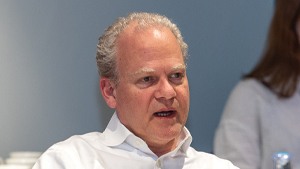
Adam Moy, Social and Sustainable Capital: I wonder whether ESG step changes can only really be experienced in a more benign global environment. Do we have to be quite realistic about the pace of change we can expect given the significant attitudinal changes required for it to be meaningful? We have a huge amount of legislation pouring out upon us and we do not really know how to interpret it all.
It seems very different to GDPR. GDPR was a huge, big thing at the time but, at the end of the day, it was more a matter of: ‘Do these sets of things to manage your data and you will be compliant’. GDPR litigation risk is perhaps more quantifiable than ESG litigation risk.
Clarissa Coleman: I think people were very nervous about GDPR and the high fines which can be awarded for breaches of the varying legislation (and reputational risk). There have been some fines, but they have not been as numerous nor as high as people feared because people did a lot of work before the legislation came into force to ensure that they were compliant. It was the threat of the fines rather than fines themselves that made a difference in that area.
Melissa Strong: That is still yet to really bite. There has to been a level of acceptance that, particularly for certain businesses that had a lot of different systems and a lot of data, it was impossible to comply by the initial deadline. There has been a reasonable period of tolerance and probably Covid has indulged businesses as well. I suspect you are going to start to see it bite in five years plus because by then there will be no tolerance at all.
Adam Moy: ESG is so connected to many different aspects of how business is conducted. It is potentially a profit centre if products can legitimately differentiate, but it is also a material cost centre to achieve. It is so wound up and integrated into the economy at large that it is quite a different beast to GDPR.

Clarissa Coleman: It is hard to say in ESG that ‘These are the five things you have to do’. ESG is so massive and multi-faceted. There are too many different issues and standards for it to be possible to ensure that risks are minimised simply by following a checklist.
The panellists
- Alia Alguire, Elastacloud
- Mark Feldman, Smiths Group
- Silvana Glibota-Vigo, Keller Group
- Caroline Halliday, Schroders
- Anthony Kenny, GSK
- Zachary Krug, Signal Capital Partners
- Adam Moy, Social and Sustainable Capital
- Catherine Odigie, Marex Financial
- Nigel Paterson, Currys
- Darshna Shah, Elastacloud
- Melissa Strong, Lloyds Banking Group
- Laura Berry, Partner, DAC Beachcroft
Clarissa Coleman, Partner, Head of International Arbitration, DAC Beachcroft - Mark McAteer, The In-House Lawyer


